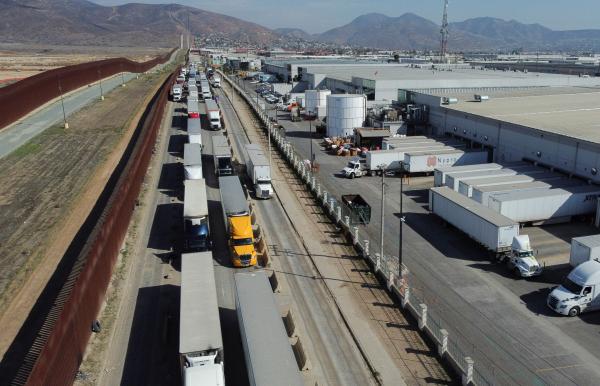MEXICO CITY/SAO PAULO, Feb 11 — Brazil and Mexico, two top shippers of steel to the United States (US), will wait to see if US President Donald Trump announces tariffs on steel and aluminium imports before reacting, officials from both nations said on Monday.
Trump is expected to introduce new 25 per cent tariffs on Monday on all steel and aluminium imports into the US, on top of existing metals duties, in another major escalation of his shake-up of trade policy.
Nearly a quarter of all steel used in the U.S. is imported, and Trump has vowed to revive domestic output after US firms have idled mills in recent years.
In a press conference on Monday, Mexican President Claudia Sheinbaum said her administration was going to "wait to see if anything is announced today, and from there we'll make a decision."
Meanwhile, Brazil's Finance Minister Fernando Haddad said the South American nation's government would "only make statements at the appropriate time and based on concrete decisions, not on announcements that could be misinterpreted or revised."
He was commenting on a local newspaper's report that Brazil could impose taxes on US tech companies in retaliation for steel tariffs. Haddad called the report "not correct."
In his first term, Trump imposed tariffs of 25 per cent on steel and 10 per cent on aluminium, though Brazil and Mexico were among the countries later exempted from them. Some of the region's top steel firms heavily serve the US market.
Ternium, which shipped a record 4.1 million metric tons of steel in Mexico in the third quarter, counts US automakers building cars in the country among its top clients. It is building a new plant in northern Mexico to meet steel requirements under Mexico's trilateral trade agreement with the US and Canada.
New York-listed shares of Ternium were up 0.8 per cent on Monday afternoon. Shares of Ternium-controlled Usiminas climbed around two per cent in Brazil trading, with only a small percentage of its steel shipments heading abroad.
Brazilian steelmaker Gerdau stands to benefit from the tariffs, as it operates 11 production units in the US and Canada. Its shares jumped more than four per cent.
[caption id="attachment_389468" align="aligncenter" width="1220"] Mexico's President Claudia Sheinbaum looks on at the National Palace, in Mexico City, Mexico, on January 21, 2025. — Picture by REUTERS[/caption]
Mexico's President Claudia Sheinbaum looks on at the National Palace, in Mexico City, Mexico, on January 21, 2025. — Picture by REUTERS[/caption]
'Dumping' from China
Steel industry leaders worldwide have in recent years accused China of engaging in a practice known as "dumping," in which it sells surplus steel abroad at below-market prices.
Both Brazil and Mexico in recent months have slapped Chinese steel imports with double-digit tariffs in a bid to curb the practice, though Brazilian steelmakers have called for even higher taxes to be implemented.
Trump has accused Mexico of acting as a back door for Chinese trade with the US. Officials in the administration of Trump's predecessor Joe Biden made similar accusations regarding Mexico's steel shipments, arguing it was possible they had originated in China.
Last week, Mexico's Economy Ministry rolled out a mechanism to better track steel imports and exports as well as their countries of origin.
— Reuters
[caption id="attachment_389469" align="aligncenter" width="1223"] Trailer trucks queue to cross into the United States at the Otay Mesa Port of Entry, in Tijuana, Mexico, on February 10, 2025. — Picture by REUTERS[/caption]
Trailer trucks queue to cross into the United States at the Otay Mesa Port of Entry, in Tijuana, Mexico, on February 10, 2025. — Picture by REUTERS[/caption]


